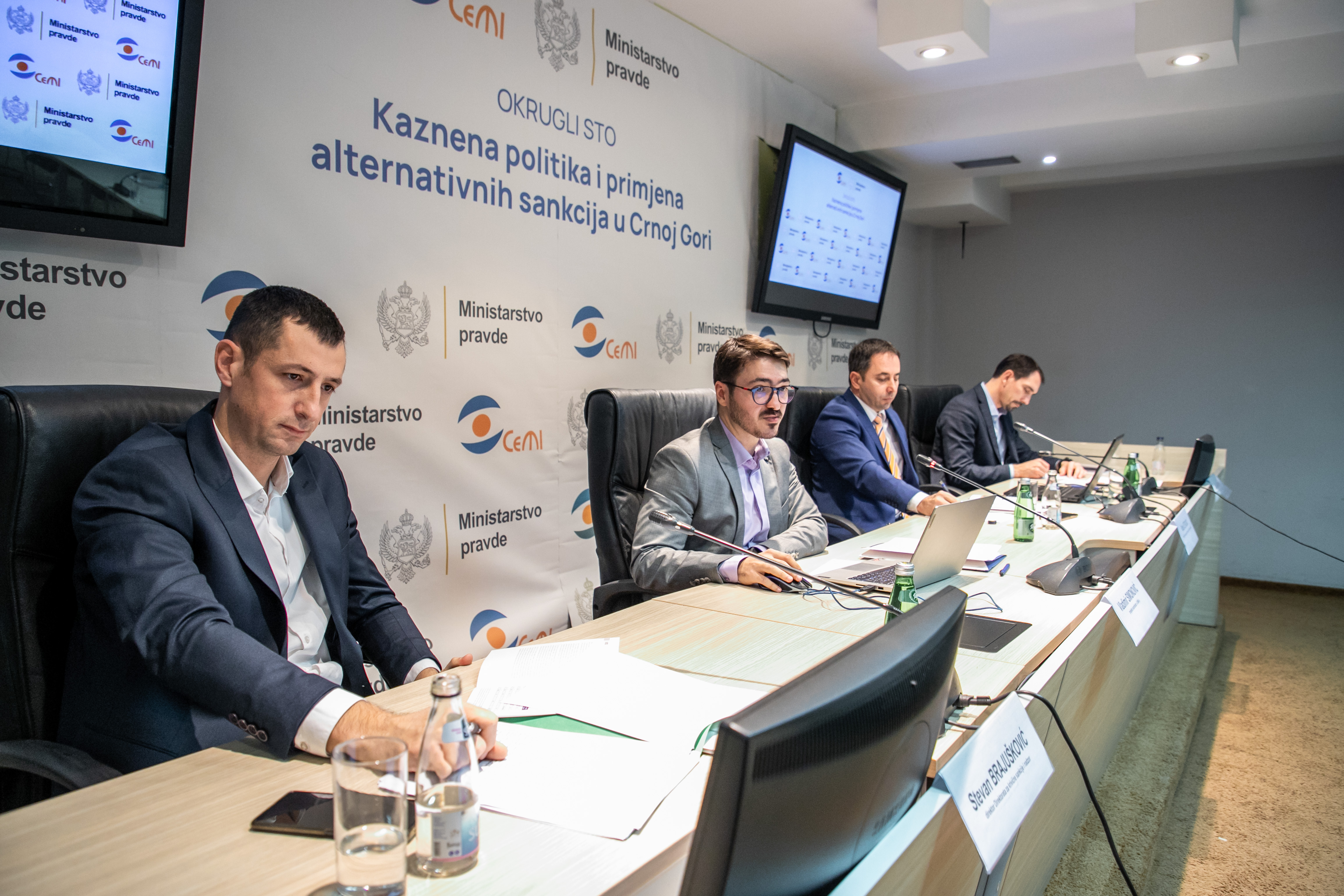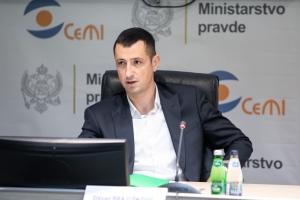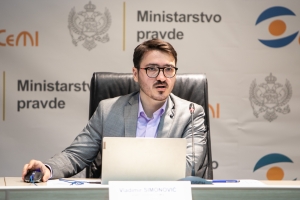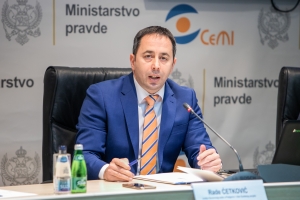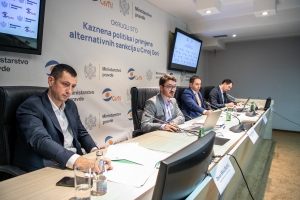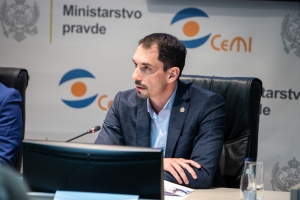Montenegrin courts have made progress in the application of alternative sanctions, but there are still significant shortcomings, because the penal system is predominantly directed towards institutional punishment.
This was announced at the round table "Penal policy and application of alternative sanctions in Montenegro", which was organized by the Center for Monitoring and Research (CeMI).
The project coordinator at CeMI, Vladimir Simonovic, said while presenting the publication "Penal policy and application of alternative sanctions in Montenegro" that the penal system is still dominantly directed towards institutional punishment, which, as he pointed out, is best evidenced by the number of short-term prison sentences which sometimes exceeds the average in the countries of the Council of Europe many times over.
"The data on the public's attitude are also devastating. As many as two-thirds of citizens believe that the prison sentence is the most effective sanction, and a large number of citizens have not even heard of the term alternative sanction. The number of prison sentences of up to six months deserves special attention," said Simonovic.
According to him, the effectiveness of short-term prison sentences is very questionable, i.e. the possibility that in such a short time interval a positive effect on the convicted person can be achieved from the aspect of special prevention.
"When it comes to the sentence of house arrest, we see from the data that there has been an increase in the imposition of this sentence, but we must also highlight the fact that a large number of these sentences were imposed for the criminal offense of failure to comply with health regulations for the suppression of a dangerous infectious disease." In fact, in a very short time, a situation has arisen where the largest number of house arrest sentences, since this punishment has been applied in Montenegro, have been imposed for this criminal offense, and it is a criminal offense that is no longer carried out in practice. nor is it expected to be relevant in the future," Simonovic said.
He pointed out that the third alternative sanction that CeMI dealt with during the research - conditional sentence with protective supervision - did not take effect.
"At the state level, we only have about a dozen judgments in which this warning measure was pronounced, namely in the Basic Court in Podgorica and in the Basic Court in Kotor. "In all the cases we investigated, it was about the criminal act of violence in the family or in the family community," Simonovic said.
He believes that, in order to analyze this issue more precisely in the future, it would be of great importance for the courts to keep separate records for prison sentences and house arrest sentences, as well as for parole and parole with protective supervision.
The Director of the Directorate for Criminal Sanctions and Supervision, Stevan Brajuskovic, said that the importance of alternative sanctions is manifold, both for the state and for the perpetrators of the crime.
"The importance of alternative sanctions is reflected in avoiding the negative effects of imprisonment, such as stigmatization in society and the bad influence of other convicted persons." At the same time, this reduces the number of convicted persons in prisons, which results in significant savings in the budget. And what is most important is that persons sentenced to this type of sanction have the opportunity to continue their employment, education or to maintain family relationships," said Brajuskovic.
According to him, the Strategy for the Execution of Criminal Sanctions 2022/2026 has been prepared, stating that it was published today for public discussion.
"The current Strategy has set more realistic goals. The previous strategy was, as I heard recently at a round table, like a wish list. There my wishes match that strategy, but the realities are very different from that. "We have foreseen the employment of new employees, as well as training for employees of the Directorate," said Brajuskovic.
The judge of the Basic Court in Podgorica and member of the Judicial Council, Rade Cetkovic, said that the topic of alternative sanctions is very important for Montenegro, which strives to become a restorative justice society.
"When we look at the statistics for 2021, the allocation from the budget per prisoner was a little less than 30 euros. The European average is somewhere around 77 euros. When that is rounded to an annual level, you arrive at a figure of ten and a half million euros, and it becomes clear that this money could have been used much better because the rate of return is extremely high. In terms of the purpose of punishment, no significant results are achieved, especially when it comes to punishments of up to six months," said Cetkovic.
He assessed that if alternative forms of sanctioning are introduced and if work is done on affirming work in the public interest, house arrest, probation with protective supervision, budgetary expenditures will be significantly reduced, "and when it comes to the purpose of punishment, the same is achieved." the result".
"It is necessary to work on strengthening the awareness of professionals in terms of the importance of alternative sanctions, but also of the citizens themselves," said Cetkovic.
He pointed out that the existing judicial information system is out of date, but that a new one is expected to be set up that will help keep records as consistently as possible.
"The new judicial system is something that we are working hard on and we expect to switch to it in the near future," said Cetkovic.
The CEO of the Institute for Legal Studies, Milorad Markovic, pointed out that alternative criminal sanctions should be viewed as an integral part of the system of execution of criminal sanctions, and not as an exclusive substitute for a prison sentence.
"That holistic approach, which includes preventive action and action through the criminal justice system itself, must be based on the concept that the focus of the system should be on the personality of the perpetrator," said Markovic.
The round table was held as part of the project "Restorative Justice Society - Affirmation of the System of Alternative Sanctions in Montenegro", implemented by CeMI and financed by the Ministry of Justice of Montenegro.
